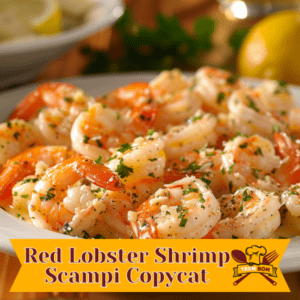
Coconut is a versatile and nutritious fruit that has gained popularity in recent years due to its numerous health benefits. Not only is coconut delicious, but it is also rich in vitamins, minerals, and healthy fats. Coconut milk and coconut water, in particular, have become popular dairy-free alternatives for cooking and hydration. In this section, we will explore the various health benefits of coconut milk and coconut water, including its nutritional value, versatility in cooking, and potential for promoting weight loss. We will also discuss its benefits for hair and skin care, as well as its suitability for individuals with lactose intolerance.
Key Takeaways
- Coconut milk and coconut water offer numerous health benefits.
- Coconut milk is a rich source of vitamins, minerals, and healthy fats, including medium-chain triglycerides (MCTs).
- Coconut milk can support heart health and boost the immune system.
- Coconut milk is versatile in culinary applications and can be used as a dairy-free alternative.
- Coconut milk can aid in weight loss, promote hair and skin care, and is suitable for individuals with lactose intolerance.
Nutritional Value of Coconut Milk
Coconut milk is a highly nutritious alternative to cow’s milk, making it a popular choice for those with lactose intolerance or on a plant-based diet. One cup of coconut milk (240 milliliters) contains:
| Nutrient | Amount per 1 cup | % of Daily Value |
|---|---|---|
| Calories | 552 | 28% |
| Total fat | 57g | 88% |
| Saturated fat | 50g | 250% |
| Carbohydrates | 13g | 4% |
| Fiber | 5g | 20% |
| Sugar | 8g | – |
| Protein | 5g | 10% |
| Vitamin C | 2.5mg | 4% |
| Iron | 5.5mg | 31% |
| Potassium | 630mg | 18% |
Coconut milk is also rich in medium-chain triglycerides (MCTs), a type of fat that is easily absorbed and used as energy by the body. MCTs have been linked to various health benefits, including weight loss, improved brain function, and reduced inflammation.
Nutritional Value of Coconut Milk
The high fat content of coconut milk has led some to question its nutritional value. However, the majority of this fat is in the form of lauric acid, which has been shown to have antimicrobial and antiviral properties. Additionally, the fiber content of coconut milk can help promote feelings of fullness and aid in digestion.
Health Benefits of Coconut Milk
Coconut milk is not only delicious but also has numerous health benefits. Here are some of the significant perks of adding coconut milk to your daily diet:
1. Promotes Heart Health
Coconut milk is rich in lauric acid, a medium-chain fatty acid that can help increase HDL (good) cholesterol levels in the body. Higher HDL levels can reduce the risk of heart disease, stroke, and other cardiovascular issues.
2. Boosts Immune System
Coconut milk is an excellent source of vitamins C and E, which are potent antioxidants that help fight free radicals and promote a healthy immune system.
3. Provides Energy and Promotes Weight Loss
Coconut milk is a good source of MCTs, medium-chain triglycerides that are easily digested and can provide an immediate source of energy. Additionally, MCTs can increase satiety and potentially aid in weight loss efforts.
4. Nourishes Hair and Skin
Coconut milk is a great natural conditioner that can help nourish and hydrate hair and skin. The fatty acids in coconut milk can also help reduce inflammation and soothe skin irritations.
By incorporating coconut milk into your diet, you can enjoy these health benefits and more!
Uses of Coconut Milk
Beyond its use in cooking, coconut milk has many other applications. Below are some of the uses of coconut milk:
- Smoothie ingredient: Use coconut milk instead of yogurt or milk to add creaminess to your smoothies.
- Coffee creamer: Coconut milk is a delicious alternative to dairy creamer for coffee and tea.
- Face mask ingredient: Mix coconut milk with honey or aloe vera gel for a hydrating and skin-softening face mask.
- Conditioner: Use coconut milk as a natural hair conditioner to nourish and hydrate hair.
- Ice cream base: Coconut milk is a rich and creamy base for homemade ice cream.
These are just a few examples of the many uses of coconut milk. Its versatility makes it a valuable ingredient to have in any kitchen or beauty routine.
Coconut Milk for Weight Loss
Coconut milk is a great addition to a weight loss diet due to its unique nutritional properties. Its high levels of healthy fats, particularly medium-chain triglycerides (MCTs), can increase satiety and keep you feeling fuller for longer periods. Coconut milk can also provide sustained energy levels, making it an ideal pre-workout beverage or a post-workout recovery drink.
Studies have shown that consuming MCTs may promote weight loss by increasing metabolism and promoting fat burning. Coconut milk can also be a great alternative to dairy milk, which is often higher in calories and saturated fats.
To incorporate coconut milk into your weight loss plan, try swapping dairy milk for coconut milk in your morning smoothies or oatmeal bowls. You can also use it as a creamer in your coffee for a healthier alternative to traditional creamers.
When cooking with coconut milk, use it in moderation as it is calorie-dense. Add it to soups, curries, and stews for added flavor and creaminess without relying on high-calorie ingredients.
Overall, adding coconut milk to your diet can be a great way to promote weight loss while also enjoying its delicious flavor and nutritional benefits.
Coconut Milk for Hair Care
Coconut milk has been used for centuries as a natural hair care product. It contains essential nutrients that nourish and strengthen hair, making it an ideal treatment for various hair concerns.
Benefits of Coconut Milk for Hair
Coconut milk is rich in vitamins and minerals that promote healthy hair growth. It contains lauric acid, which penetrates the hair shaft and nourishes it from within. This helps to prevent hair breakage and split ends, making hair appear stronger and fuller.
Using coconut milk as a hair mask can also help to soothe an itchy, dry scalp. The moisturizing properties of coconut milk leave hair feeling soft and hydrated, while reducing frizz and improving overall manageability.
Ways to Use Coconut Milk for Hair
There are several ways to incorporate coconut milk into your hair care routine. One simple method is to apply it directly to your hair as a leave-in conditioner. This can be done by mixing equal parts coconut milk and water, then massaging it into your hair and scalp.
Another way to use coconut milk is to add it to your regular shampoo or conditioner. Simply mix a tablespoon of coconut milk into your favorite hair product, and use as usual. This will help to enhance the moisturizing benefits of your hair care routine.
DIY Coconut Milk Hair Mask Recipe
For a deep conditioning treatment, try this easy DIY coconut milk hair mask:
- Whisk together 1/2 cup of coconut milk with 1 tablespoon of honey and 1 tablespoon of olive oil.
- Apply the mixture to damp hair, focusing on the ends.
- Cover your hair with a shower cap or towel, and let the mask sit for at least 20 minutes.
- Rinse thoroughly with warm water, then shampoo and condition as usual.
This hair mask is great for restoring moisture to dry, damaged hair, leaving it feeling soft and revitalized.
Conclusion
Coconut milk is a natural and effective solution for promoting hair health and addressing common hair concerns. Its nourishing and moisturizing properties make it a great addition to any hair care routine. Try incorporating coconut milk into your hair care regimen today and experience the benefits for yourself!
Coconut Milk for Skin Care
Coconut milk isn’t just a tasty addition to your meals; it can also do wonders for your skin. Thanks to its hydrating and nourishing properties, coconut milk has become a popular ingredient in skincare products. Here are some of the benefits of using coconut milk for skin care:
- Moisturizing: Coconut milk is a natural moisturizer that can help to hydrate and soften the skin. Its high fat content keeps the skin moisturized for longer periods, making it an excellent choice for people with dry or flaky skin.
- Soothing: Coconut milk contains anti-inflammatory properties that can help to soothe skin irritations and inflammation. It can also help to reduce redness and itching caused by skin conditions like eczema and psoriasis.
- Anti-aging: Coconut milk is rich in antioxidants, which can help to protect the skin from free radicals that can cause premature aging. It also contains cytokinins, which are plant hormones that can help to repair damaged skin cells and encourage cell growth.
Using coconut milk for skin care is easy. You can apply raw coconut milk directly onto your skin or look for skin care products that contain coconut milk as an ingredient. Some popular coconut milk skincare products include cleansers, moisturizers, and face masks.
“Coconut milk is a natural moisturizer that can help to hydrate and soften the skin.”
When using coconut milk on your skin, it’s essential to patch test first to make sure you’re not allergic to it. Apply a small amount of coconut milk on the inside of your wrist or elbow and wait for 24 hours to see if you have any adverse reactions.
Overall, coconut milk is an excellent addition to your daily skincare routine. Its hydrating, soothing, and anti-aging properties make it a great choice for anyone looking to improve their skin health and appearance.
Coconut Milk for Cooking
Coconut milk is an incredibly versatile ingredient that can be used in a variety of recipes. Its rich, creamy texture and slightly sweet flavor make it an excellent substitute for dairy milk, cream, and even yogurt. Here are some tips for using coconut milk in your next cooking adventure:
1. Choose the Right Type of Coconut Milk
When selecting coconut milk for cooking, be sure to choose the right type for your recipe. There are two types of canned coconut milk: full-fat and light. Full-fat coconut milk has a higher fat content and is ideal for recipes that require a rich, creamy texture. Light coconut milk, on the other hand, is better suited for dishes that require a thinner consistency.
2. Add Coconut Milk to Your Morning Smoothie
Coconut milk is a great addition to your morning smoothie. It adds a creamy texture and a delicious tropical flavor. Simply blend frozen fruit, coconut milk, and your favorite sweetener for a quick and healthy breakfast.
3. Use Coconut Milk in Curry Dishes
Coconut milk is a staple ingredient in many curry dishes. Its creamy texture helps to balance out the spiciness of the curry sauce, while adding a subtle sweetness. Try adding coconut milk to your next curry dish for an authentic flavor.
4. Use Coconut Milk in Soups and Stews
Coconut milk is a great alternative to cream in soups and stews. Its creamy texture gives soups and stews a rich, velvety texture without the added calories. Try adding coconut milk to your next pot of soup or stew.
5. Use Coconut Milk in Baked Goods
Coconut milk can be used in baked goods to add a subtle sweetness and moisture. It is a great alternative for those who are lactose intolerant or looking to reduce their dairy intake. Try substituting coconut milk for dairy milk in your favorite muffin or cake recipe.
By incorporating coconut milk into your cooking, you can add a unique flavor and a variety of health benefits to your meals. Get creative and experiment with different recipes to discover your favorite way to use coconut milk.
Coconut Milk for Lactose Intolerance
If you’re lactose intolerant, you may have trouble digesting dairy milk, making it a challenge to find suitable alternatives. Fortunately, coconut milk offers a tasty, nutritious, and lactose-free option that won’t upset your stomach.
Coconut milk is made by blending coconut meat with water and then straining it. Since it is plant-based, it doesn’t contain lactose, making it a great dairy-free alternative. Coconut milk has a rich, creamy texture and a slightly sweet flavor, which makes it a great replacement for dairy milk in recipes.
Using coconut milk as a replacement for dairy milk can also provide additional health benefits. Coconut milk is a rich source of medium-chain fatty acids, which are easier to digest than other fats, making it a good choice for those with digestive issues. Additionally, it is packed with vitamins and minerals such as iron, magnesium, and potassium.
However, it’s important to note that coconut milk has a higher fat content than dairy milk, so it should be consumed in moderation, especially if you’re watching your calorie intake.
If you’re looking for a delicious and nutritious alternative to dairy milk, try incorporating coconut milk into your diet. It’s versatile and can be used in various recipes such as smoothies, curries, soups, and baked goods.
Delicious Coconut Milk Recipes
Coconut milk is a versatile ingredient that adds creaminess and a unique flavor to dishes. Here are some delicious and easy-to-make coconut milk recipes to inspire your next cooking adventure:
1. Creamy Coconut Curry
This savory dish is perfect for a cozy night in. In a pan, sauté garlic and onion in coconut oil. Add your choice of protein (chicken, shrimp, or tofu) and cook until browned. Then add vegetables (such as bell peppers, carrots, and broccoli) and sauté until tender. Pour in a can of coconut milk and simmer until the sauce thickens. Finally, add curry powder, salt, and pepper to taste. Serve over rice or with naan bread.
2. Coconut Milk Smoothie
This tropical smoothie is a nutritious and delicious breakfast or snack option. Blend together frozen pineapple, banana, spinach, and coconut milk until smooth. Optional additions include chia seeds or protein powder for an extra boost of nutrition.
3. Coconut Milk Ice Cream
This dairy-free alternative to ice cream is easy to make and tastes indulgent. In a blender, combine a can of full-fat coconut milk, vanilla extract, and your choice of sweetener (such as honey or maple syrup). Pour the mixture into an ice cream maker and churn according to the manufacturer’s instructions. Enjoy on its own or with fresh fruit.
4. Coconut Milk Rice Pudding
This comforting dessert is a classic that’s made even better with coconut milk. In a pot, combine cooked rice, coconut milk, sugar, and vanilla extract. Cook over low heat until the mixture thickens. Serve warm or chilled with cinnamon on top.
5. Creamy Coconut Milk Pasta
This pasta dish is a crowd-pleaser that’s easy to make. Cook your choice of pasta according to the package instructions. In a pan, sauté garlic and onion in olive oil. Add a can of coconut milk and simmer until the sauce thickens. Then add cooked pasta and stir until the noodles are coated in the sauce. Serve with fresh herbs, such as basil or parsley.
These coconut milk recipes are just a few examples of the delicious ways you can enjoy this versatile ingredient. Whether you’re cooking a savory curry or whipping up a sweet dessert, coconut milk adds a unique flavor and creaminess to any dish. Give these recipes a try and enjoy the many benefits of coconut milk!
Tips for Using Coconut Milk
Coconut milk is a versatile and delicious ingredient that can be used in a variety of dishes, from savory curries to sweet desserts. Here are some tips to help you get the most out of this dairy-free alternative:
- Shake well before use: Coconut milk can separate in the can, so be sure to give it a good shake before opening to ensure a consistent texture.
- Use full-fat coconut milk: While you may be tempted to opt for the low-fat version, full-fat coconut milk provides the creaminess and richness that make it a delicious ingredient.
- Choose the right brand: Not all coconut milk is created equal. Look for brands that are organic, non-GMO, and free of additives and preservatives for the best quality.
- Experiment with different recipes: Don’t be afraid to try coconut milk in new and creative ways! It can be used as a dairy-free substitute in many recipes or as the star ingredient in dishes like coconut curry or coconut rice pudding.
- Store properly: Once opened, coconut milk should be stored in an airtight container in the fridge and consumed within a few days.
- Adjust consistency as needed: If a recipe calls for a thicker or thinner consistency than what your coconut milk provides, you can adjust it by mixing it with water or reducing it on the stove.
By following these tips, you’ll be well on your way to enjoying all the delicious and healthy benefits of coconut milk. Experiment with new recipes and techniques to discover all the ways this versatile ingredient can enhance your cooking!
Conclusion
Coconut milk and coconut water are versatile and nutritious ingredients that offer a range of health benefits. From improving heart health to promoting weight loss, aiding in hair and skin care, and adding delicious flavor to various dishes, coconut milk is a valuable addition to a healthy lifestyle.
By exploring the nutritional value of coconut milk and its benefits for overall wellness, we can better appreciate its potential for enhancing our health journey. Whether it’s using coconut milk for cooking or incorporating it into our daily routines, the benefits of this dairy-free alternative are numerous.
Try out some of the delicious coconut milk recipes shared in this article and use our helpful tips to make the most of this versatile ingredient. Remember, coconut milk offers a range of benefits for everyone, including those with lactose intolerance.
So, go ahead, give coconut milk a try and start enjoying the numerous advantages it provides for overall wellness.
FAQ
What are the health benefits of coconut milk?
Coconut milk offers numerous health benefits, including promoting heart health, boosting the immune system, aiding in weight loss, and providing essential vitamins and minerals.
What is the nutritional value of coconut milk?
Coconut milk is rich in vitamins, minerals, and healthy fats, including medium-chain triglycerides (MCTs), which can provide energy and support overall wellness.
How can coconut milk be used beyond cooking?
Coconut milk can be used to add creaminess to beverages, incorporate into baked goods and desserts, and even as a substitute for dairy milk in various recipes.
Can coconut milk help with weight loss?
Yes, coconut milk can be a helpful addition to a weight loss plan. It is satiating, provides sustained energy, and may have a positive impact on metabolism.
What are the benefits of using coconut milk for hair care?
Coconut milk can nourish and condition hair, promote growth, and address common hair concerns such as dryness and damage.
How can coconut milk benefit the skin?
Coconut milk has moisturizing properties, can soothe skin irritations, and may improve overall skin health and appearance.
How can coconut milk be used in cooking?
Coconut milk adds flavor, creaminess, and unique benefits to various recipes, including savory dishes and desserts.
Is coconut milk suitable for individuals with lactose intolerance?
Yes, coconut milk is a suitable alternative for those with lactose intolerance. It is lactose-free and can be used as a replacement for dairy milk.
Do you have any delicious coconut milk recipes to share?
Absolutely! Check out our selection of delicious coconut milk recipes, including savory curries and indulgent desserts, to inspire your culinary creativity.
Do you have any tips for using coconut milk effectively?
Certainly! We’ll provide practical tips and tricks for storing and selecting coconut milk, achieving desired consistency, and enhancing your cooking experience with this versatile ingredient.






